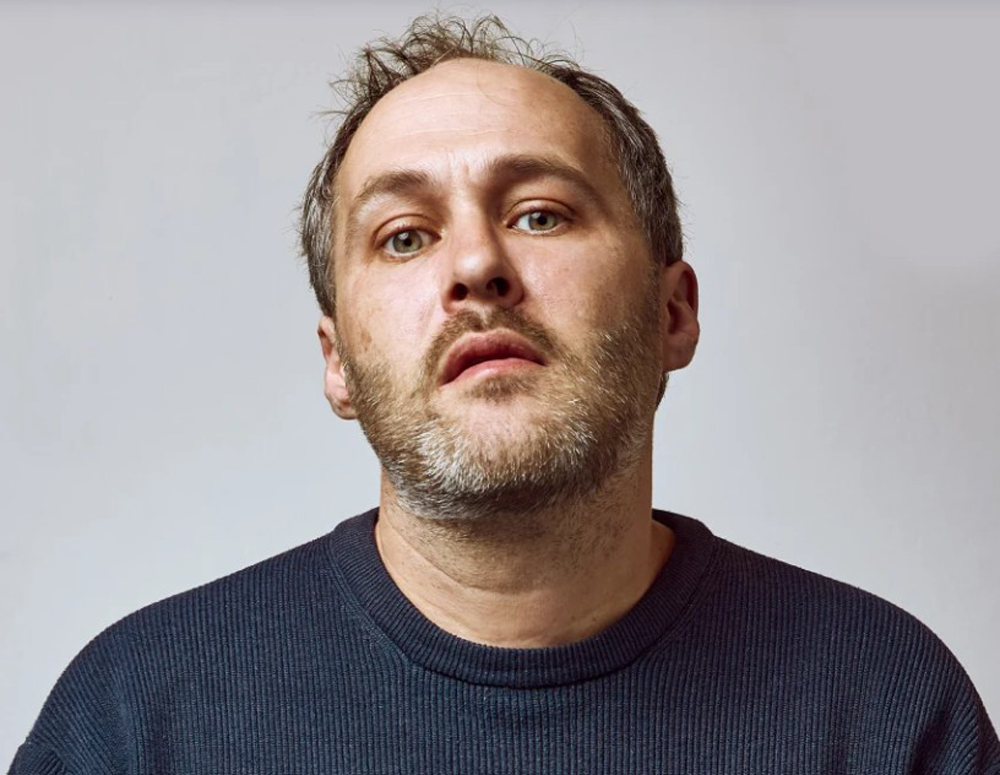In 2/2002, 20-year-old art student Henry Cockburn left the University of Brighton, England, seeking a more fulfilling life outside the city. He also decided to walk the nearly 70 miles back to his childhood home in Canterbury.
About 15 miles into his journey, Cockburn heard a plane overhead and became convinced that malevolent forces were aware of his departure. Believing he was being followed, he plunged into the frigid tidal waters of the Newhaven estuary and swam to escape. Fishermen found and rescued him just before he lost consciousness from hypothermia. After being revived at a general hospital, he was transferred to a psychiatric facility where doctors diagnosed him with schizophrenia. It was the first of many facilities he would inhabit over the next eight years.
Schizophrenia is among the most well-known and misunderstood mental illnesses. According to the American Psychiatric Association, it affects 0.32% of the global population, approximately 24 million people. It's a chronic brain disorder often characterized by psychosis, delusions, hallucinations, lack of motivation, and disordered thinking and speech.
Cockburn's case reflects a typical onset: in early adulthood, a psychotic break leads to distorted beliefs, hallucinations, and delusions. "I saw it as a spiritual awakening rather than paranoid schizophrenia," Cockburn recalled. "It felt almost as if I was on the run." He felt frustrated and angry, wondering why others couldn't understand him.
"Now I sort of understand their point of view a bit more," Cockburn shared.
 |
Henry Cockburn. Photo: Pete Edlin |
Henry Cockburn. Photo: Pete Edlin
When does the illness typically emerge?
Experts say symptoms of schizophrenia usually begin between the ages of 15 and 25. According to Professor Daniel Weinberger from Johns Hopkins University, an individual might be living a stable, even successful life, and then suddenly experience what experts call a “first break." This episode disrupts their ability to function normally.
For Professor of Psychiatry Deepak D’Souza, director of the Schizophrenia Neuropharmacology Research Group at Yale University, "schizophrenia is the most devastating mental illness because it strikes a person before they have reached their full potential." Research suggests this disruption may stem from alterations in the normal neurodevelopmental processes of adolescence. But for some, the groundwork for these changes may be laid in early childhood, taking the full 20 years of brain development for the effects to become apparent, according to Weinberger.
According to D’Souza, schizophrenia is primarily seen in men. "However, there is a second peak of the disease in women in their early 50s, thought to be related to menopause," he said.
The direct cause of schizophrenia remains unclear, but several factors are known to contribute, including brain chemistry and genetics. Studies also point to structural abnormalities in the brains of those with the illness. A complicated pregnancy (preeclampsia, prolonged labor, low birth weight) can double a child's risk. Stress and trauma are also risk factors.
The role of stimulants
Adolescent use of hallucinogens is another risk factor. According to D’Souza, this is partly because today’s cannabis is 5 to 20 times more potent than in the 1970s. Additionally, "young people are using it at a time when the brain is undergoing tremendous upheaval."
When diagnosed at 20, Cockburn had been using cannabis and alcohol several times a week since he was 14. He doesn't believe stimulants caused his illness but acknowledges unusual behaviors like walking barefoot in winter. The chemicals in cannabis mimic naturally occurring molecules in the brain called endocannabinoids, crucial for regulating mood, learning, and neurodevelopment. "Imagine this system is working normally and then it’s bombarded with THC (the main active ingredient in cannabis)," D’Souza explained. However, Weinberger notes research on this link is still debated.
Symptoms of schizophrenia
The symptoms of schizophrenia affect a person’s emotions, thoughts, and actions. Delusions, believing things that aren't true, are a common symptom. They can be "extremely disturbing, tormenting, and debilitating," Weinberger said. Someone might believe the CIA has infiltrated their phone and remove the battery. Cockburn once read a novel and became convinced the world was created from a song, as in the story. "I was reading fiction and then looking for the fantastic in the reality of this world," Cockburn said. He also felt trees and birds could speak to him, or that he could converse with spirits. Once, a tree "told" Cockburn he could rap, and he began pursuing it.
Hallucinations are also common, such as talking to someone who isn't there. Cockburn sometimes saw snipers outside his hospital room window. These delusions and hallucinations can lead to fear and paranoia. Auditory hallucinations, often in the form of voices, can command individuals to perform actions they find difficult to resist, even self-destructive ones. About 5% to 13% of patients die by suicide, sometimes by obeying hallucinatory commands. Other common symptoms include cognitive impairment (difficulty planning or processing information), disorganized speech, unusual movements, lack of motivation, and social isolation.
Schizophrenia is not curable but can be significantly managed with a combination of medication and therapy. The most effective medications are antipsychotics, which help control symptoms. However, a major obstacle to treatment is medication non-compliance, sometimes due to anosognosia (lack of awareness of one's illness), which affects 50% to 98% of patients. Other therapies include talk therapy, social skills training, and cognitive behavioral therapy (CBT).
Since his last hospitalization in 2011, Cockburn has managed his illness well through medication, counseling, and CBT. He is currently not dating but has close friends and family. He has completed a bachelor's degree, lives on disability benefits, and occasionally sells his artwork. Cockburn still experiences occasional panic attacks but has learned coping mechanisms. In 2011, he co-authored a memoir with his father, journalist Patrick Cockburn. The book was nominated for an award and adapted into a radio play.
"It sounds cliche, but don’t give up," Cockburn advised. "I always believed that even in the darkest moments, there’s someone somewhere looking out for you. You are not alone."
Binh Minh (From CNN)












